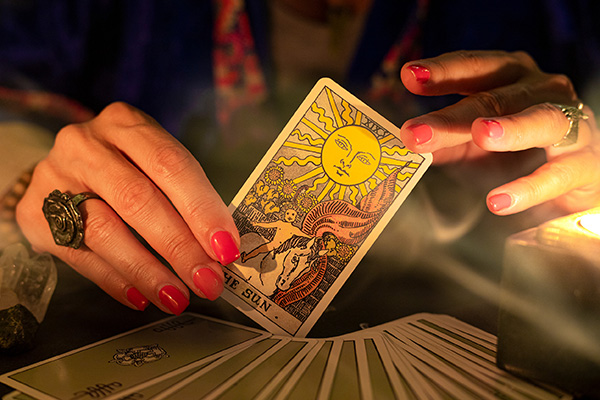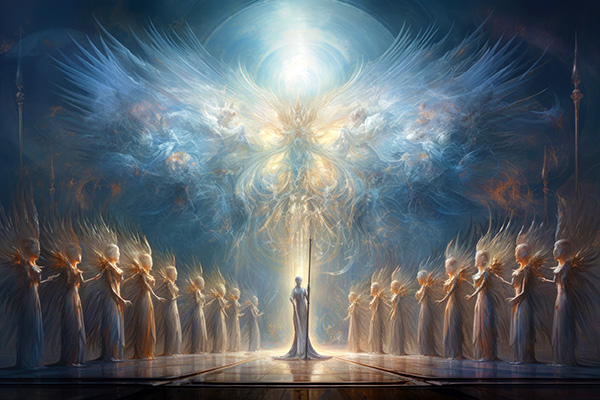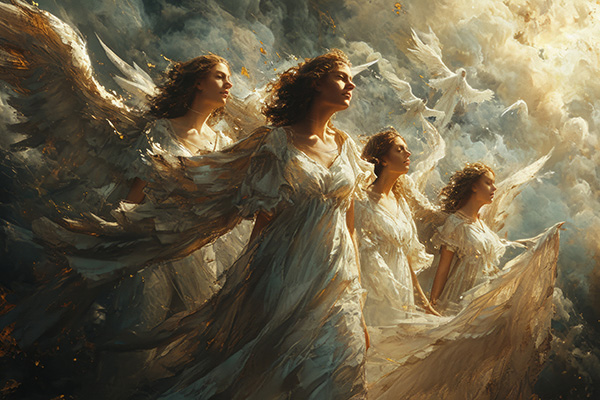spiritual guidance
How To Prepare For The Ultimate Psychic Reading
 Have you ever had a psychic reading where the insights felt off, confusing or unclear? The key may not have been the psychic, but your own level of preparation.
Have you ever had a psychic reading where the insights felt off, confusing or unclear? The key may not have been the psychic, but your own level of preparation.
To get the most out of your time with a psychic or medium, it’s important to prepare mentally, emotionally and energetically. Being well-prepared for your reading allows the psychic or medium to tune into your energy more effectively, ensuring that you receive the most relevant and meaningful messages.
By setting clear intentions, creating a peaceful space, asking thoughtful questions, and remaining open, you will ensure that you receive the most meaningful insights.
Whether you are seeking answers about love, career, family, or your spiritual journey, a reading with one of our gifted psychics offers profound wisdom and validation. It is a powerful and transformative experience that offers clarity, guidance and insight into various areas of your life.
Our team of gifted readers at Psychic Access are carefully selected for their exceptional skill, integrity and accuracy, ensuring that you receive authentic and meaningful insights.
Beyond mere predictions, a psychic reading can reveal hidden opportunities and unseen potential, help you better understand yourself and your soul purpose, and empower you to face life’s challenges with greater confidence.
A spirit-guided reading with a skilled reader is an opportunity to reconnect with your true purpose, gain clarity and direction, and receive messages that resonate deeply with your soul. With an open heart and mind, you can experience life-changing revelations that empower you to make informed decisions and align with your highest good.
Realigning With Your Higher Self
 In my readings, I often feel that people’s energy is fragmented — like an incomplete jigsaw puzzle with missing pieces. This fragmentation reflects a general disconnection from the core essence of their being: the higher self.
In my readings, I often feel that people’s energy is fragmented — like an incomplete jigsaw puzzle with missing pieces. This fragmentation reflects a general disconnection from the core essence of their being: the higher self.
It’s no surprise that modern life pulls us in countless directions, leaving us feeling stretched, overwhelmed, and out of balance. Between the demands of work, family, and personal goals, the balance of work, rest, play, sleep, and spirit seems to have slipped through our fingers.
Compounding this imbalance is our growing impatience and intolerance. We bristle at delays, resist restrictions, and struggle when life deviates from our carefully laid plans.
Yet frustration and impatience only hinder the natural unfolding of our highest good. The person we are waiting to meet or the opportunity we are longing for may not be ready to enter our lives — or, more likely, we may not be ready to welcome it.
When we feel lost, stuck, confused, or fearful, these are signs of misalignment or disconnection from our higher self. This distortion cuts us off from clear inner guidance and spiritual awareness, leaving us adrift in a sea of doubt, fear, and negativity.
Realigning with our higher essence restores the natural flow of energy, inner wisdom, and divine guidance. We rediscover our wise inner genius, the calm confidence that resides within, and the power to live in harmony with our true essence and fulfill our soul plan.
The Multi-Layered Magic Of The Tarot
 It’s no secret that the Tarot is my favorite divination tool. It is like a trusted assistant to me, always there to provide support and clarity, both in my professional work and in my own spiritual practice.
It’s no secret that the Tarot is my favorite divination tool. It is like a trusted assistant to me, always there to provide support and clarity, both in my professional work and in my own spiritual practice.
Do you know how sometimes you have a gut feeling about something, but you can’t quite put it your finger on it? Or how sometimes you have trouble remembering someone’s name, even though it’s on the tip of your tongue?
Well, that’s how the Tarot helps me when I read for people. It often helps me bridge everyday life with the esoteric and translate psychic messages in a more practical way.
The cards act as a metaphysical magnifying glass, sharpening my psychic impressions and intuitions into clear messages, guidance and predictions. Sometimes it is just a single symbolic element in a card that jumps out, demanding attention and holding the key to unlocking the essence of the message.
A single Tarot card can reveal a plethora of meanings and insights, each layer shaped by that particular reading. Tarot is deeply symbolic and fluid, allowing each card to be interpreted in myriad ways.
First, the context of the reading is important. Whether the question is about love, career, health, finances, or personal fulfillment, the meaning of a card can change significantly. For example, the Two of Cups could mean a romantic partnership in a relationship reading, but a harmonious business partnership in a career reading.
Second, the client’s state of mind and personal circumstances influence the interpretation of the card. Their experiences, desires, and fears color how the imagery and symbolism will be perceived by the psychic. The same Two of Cups might highlight existing trust issues for one person, while signifying a newfound connection for another.



